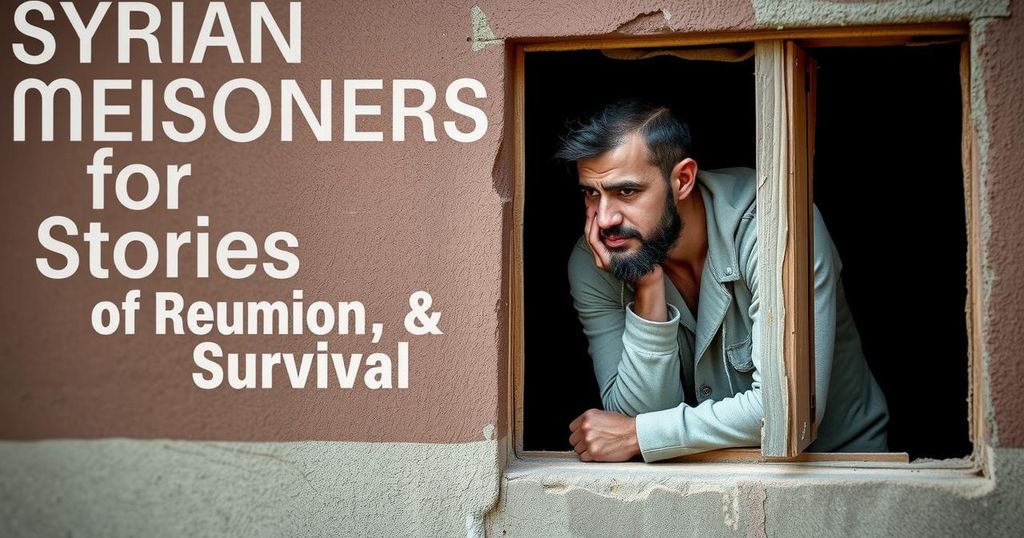The article presents three poignant stories of individuals affected by Syria’s brutal detention regime: Mazen al-Hamada, who endured severe torture and was later killed; Rania al-Abbasi, whose entire family was arrested and remains missing; and Tal al-Mallouhi, who was imprisoned for nearly 15 years for her poetry and finally reunited with her mother. These narratives highlight the tragic realities faced by families amidst the Syrian civil war and the ongoing quest for justice.
In the aftermath of President Bashar al-Assad’s regime collapse, many Syrians flock to notorious detention facilities to seek news of loved ones who have been incarcerated or disappeared. Thousands of prisoners have been released after enduring grotesque conditions, yet countless others remain unaccounted for, with hopes dwindling. A staggering half a million individuals have perished in the Syrian civil war, with many of these deaths occurring in state prisons, highlighting the brutal nature of the conflict.
Mazen al-Hamada’s tragic story has resonated widely in recent times. A committed activist, al-Hamada was among the first to lead protests against al-Assad’s rule, only to be arrested in 2012 for smuggling supplies. His subsequent ordeal involved severe torture and inhumane treatment, leading him to flee to the Netherlands after his release. Al-Hamada became a prominent voice for those mistreated by the regime and sought justice for fellow victims. However, upon returning to Syria in 2020 under false pretenses, he was arrested once again, and his lifeless body was later discovered, symbolizing the ongoing brutality of the regime.
Rania al-Abbasi, a dentist and national chess champion, faced a similar fate when she and her family were arrested in 2013 after donating to a besieged family. Despite her sister Naila’s tireless search efforts, the al-Abbasi family remains missing. Naila’s unyielding quest for justice reflects the anguish experienced by families of the approximately 100,000 disappeared Syrians.
In another instance, Tal al-Mallouhi was imprisoned at just 19 for sharing her poetry online. After enduring 15 years of separation from her mother Ahd, Tal’s release became a beacon of hope amidst the despair that has plagued many families in Syria. Nevertheless, she faces a long road to recovery, as the horror of her captivity remains a heavy burden.
These stories epitomize the deep scars left by the Syrian conflict, as families seek justice and reconciliation, amidst the harsh reality of the regime’s continuing legacy of violence and suppression.
The article delineates the haunting realities faced by Syrian prisoners and their families in the wake of the regime’s downfall. It emphasizes the atrocities endured by political prisoners during the civil war, many of whom suffered horrific torture and prolonged detentions. These personal accounts highlight the pervasive trauma affecting numerous families still searching for lost loved ones and the indelible quest for justice amidst persistent governmental suppression.
In summary, these powerful narratives illustrate the human cost of the Syrian conflict, showcasing the resilience of individuals who have endured unimaginable suffering. They shed light on the plight of families searching for loved ones and the ongoing aspiration for justice within a fractured society. The enduring struggle of these survivors underscores the need for accountability and recognition of the regime’s grave violations against its citizens. Thus, the hope for a reconciled future is intertwined with the promise of justice for countless victims.
Original Source: edition.cnn.com






